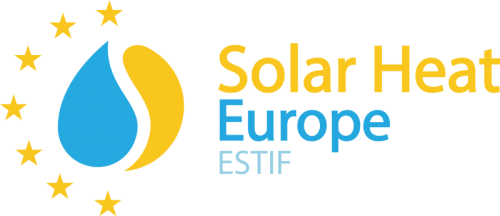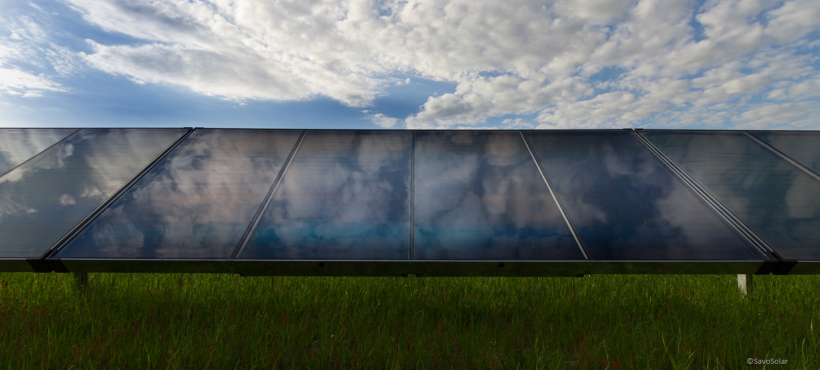Preliminary results for the European solar thermal heat market indicate that despite an increase in total installed capacity, the year-on-year sales will have a negative variation. Impressive increases in markets such as Germany and the Netherlands demonstrate that adequate policy measures are effective even in periods of the pandemic, allowing to increase the resilience of the sector.
The results of the three largest European markets help to clarify expectations for the 2020 market. Germany, Greece, and Poland represented, in 2019, 51% of the overall solar thermal heat market in Europe, with over 810 MWth of newly installed capacity. Based on the results from these countries, we can expect an increase in the overall installed capacity, as the three in combination have an increase of almost 10% in their solar thermal heat stock.
The situation regarding year-on-year sales is nevertheless different, as the negative results in Greece (-15.7%) and Poland (-28.6%) neutralise the outstanding increase of newly installed systems of +25.9% in the German market. The three countries combined reduced their year-on-year sales by 0.6%.
The German powerhouse shines
The newly installed capacity reached the highest growth since the spectacular increase of 2008. The sales of solar thermal collectors, in terms of capacity (kWhth) increased by 26%, surpassing 450 MWth. In terms of the number of systems installed, the increase was 17%, with 83 000 new solar thermal heat systems installed. This brings the total number of solar thermal systems installed in Germany to around 2.5 million, according to BDH and BSW.
The two associations see the main reason for the positive trend as being the significantly improved “Heating with Renewable Energies” subsidy program that came into force at the start of 2020 as part of the climate package. The program promotes, among other things, the combination of gas condensing boiler technology and a solar thermal system with a maximum rate of 45 percent. “The subsidy program is a complete success for climate protection,” emphasizes BDH President, Uwe Glock. The measures that have been put in place to reach the ambitious climate target must be reinforced, to promote the faster uptake of renewable heat solutions such as solar thermal.
Since January 2021, the German government has combined all subsidies for energy-efficient buildings and climate-friendly heating systems in the new Federal Subsidy for Efficient Buildings (BEG). This support allows, for example, that retrofitting an existing heating system with a solar thermal heat system qualifies for a subsidy of 30 percent of the eligible costs. This can be increased to 40% if an old gas boiler is also replaced by a more efficient option. And it must be highlighted that other important measures are in place, in particular the CO2 charges, which are set to rise annually, leading to the increase of the costs associated with the use of fossil fuels.
This example shall also be considered by other countries, that have been lagging in terms of support to solar thermal heat, in particular when compared to other renewable solutions, such as solar photovoltaics, which have been creating an unlevel playing field between different renewable solutions. Regarding the expectations for 2021 in Germany, they are extremely positive. According to BSW’s CEO, Carsten Körnig, “The signs continue to point to growth. The business climate in the solar industry is at its highest level in over ten years.”
These are indeed good news from a country that has been historically in the solar thermal heat industry and in promoting renewable solutions.
A passing cloud over sunny Greece
Greece is the second largest solar thermal heat market and has had over the years a remarkable market evolution, setting an enviable record of steady growth over the last decade. The effects of the pandemic were felt in the sector and the year-on-year sales decreased by 15,7%, even if the total installed capacity is expected to increase by 2.5%.
In fact, the sales in 2020 started at a good pace, leading to very positive expectations. The decrease was mostly the result of the first lockdown, with a decrease of about 50% for April and May 2020. Other months were also affected but to a lesser degree. This results from the specificities of the Greek market, where sales in specialised commerce, namely wholesalers, are quite relevant. And this cannot be fully replaced by other sales channels, including online sales. Furthermore, the effects of the pandemic in the economic activities overall meant that the sales to the tourism sector in general (hotels, restaurants) were strongly affected.
On the other hand, initial numbers indicate that exports were stable, with a small increase in solar collectors sales and a larger increase for storage tanks.
The expectations for 2021 are positive, with the market players expecting an increase this year. Additionally, the Greek Government is looking into measures to promote the uptake of solar thermal heat systems, as part of their plans to address climate targets, hopefully giving more attention to a sector where Greek companies and products are a reference in Europe and worldwide.
Poland cools down and craves solar warmth
The Polish solar thermal heat market has had a remarkable evolution over the last years, rising to the European top three in newly installed capacity, largely grounded on Polish manufacturers.
The total installed capacity is expected to increase by 5.4%, though the year-on-year sales are expected to decrease by 44%, staying just above 160 000 m2 (113 MWth). This reduction was largely expected, namely because of the ending of regional support programs, that were, to a large extent, benefiting from available European Regional Development Funds. This change affected in particular the installation of larger systems.
The retail market is rather limited in Poland and has been largely affected by policies promoting electrification. Therefore, this market can largely benefit from adequate policies and support schemes that promote a stronger uptake or efficient and renewable heat solutions, that can contribute to better air quality and lower CO2 emissions. In this regard, the retrofit of solar thermal heat systems to existing systems or the replacement of existing solutions by solar hybrid systems, making them an equal priority to other solutions such as heat pumps would be instrumental to a better market and a more balanced approach to the decarbonisation of the heating sector in Poland.
This is a revised version of the initial article published on April 13th, that includes corrections on the Polish market data.


Leave a Reply